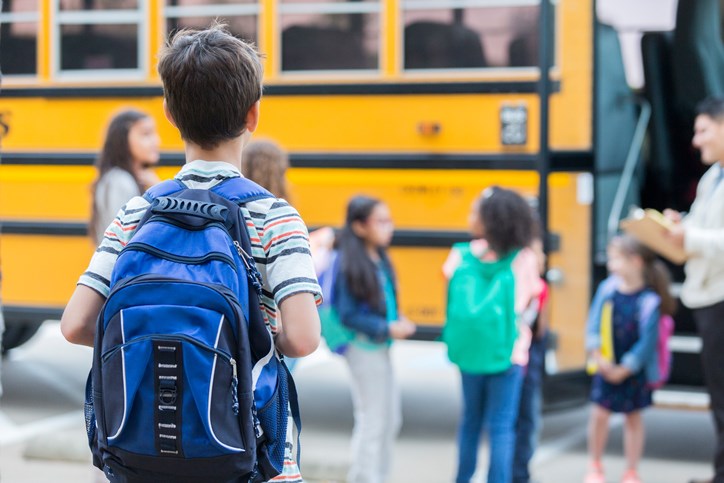PRINCE ALBERT - The Saskatchewan Rivers School Division’s transportation accountability report shows bus route cancellations decreased significantly in 2022. There has also been a small decrease in students transported year over year.
The Sask. Rivers board got a look at the report during their special meeting on Wednesday. It shows 350.5 routes cancelled from January 2022 to January 2023. That’s a decrease from the 739 cancellations the year before.
“Last year was an unusually difficult year for us for weather and other things but even despite that there is still some good trends even relative to the five year trend,” director of education Robert Bratvold said.
Weather was the biggest cause of cancellations with 326.5 days. There were also 19 days cancelled because a substitute driver was not available, with no data available on whether those were COVID-19 related. There were also five days cancelled due to mechanical issues.
According to the report, recruiting and hiring bus drivers continues to be a challenge. This problem is particularly acute in substitute drivers as the division continues to have all regular routes filled.
“That still is a need for us, we know our bus drivers do an important job. I mean I hope people understand that, I know that we certainly do in the division the crucial role that bus drivers play,” Bratvold said.
“We are still continuing to (attempt to) increase those sub drivers and that's important work,” Bratvold added.
This was the second report since the board requested more depth and greater detail. Each division in Saskatchewan receives this report from the Ministry of Education four times a year to see how the division's buses, drivers and mechanics are doing. The report is done semi-annually in the division.
The oral report was given by Chief Financial Officer Jerry Pidborochynski and outlined a broader report because of a board request.
The report featured data up to Jan. 31, 2023. The number of students transported has decreased slightly from the previous report in 2021. In 2023 there were 3,179 students transported compared to 3,368 in 2022.
Numbers transported changed because of the transition to some city transport for Prince Albert high school students and declining rural student populations.
“There would be a mix there, there would be some urban high school transportation that now is provided by the city transit service. We also had some decline in enrolment in our rural areas so that would also have an impact on the total number of students transported,” he said.
Rural depopulation is a trend across the province and impacts a number of parts of education.
“It's definitely a demographic provincial social and cultural trend, but it impacts the declining population in many of our rural areas,” Bratvold said. “(It) certainly affects us across the education sector in lots of way in terms of programs and staffing and bussing and substitutes and all kinds of things.”
Bratvold said the division’s rural population is well-balanced, which makes bus transportation a bit easier, Bratvold added.
“We are in a fortunate position because we have got a really good mix of rural and urban so we can find some ways to support both those needs, which are distinct in some ways,” he said.
The average age of the bus fleet has decreased from eight years in 2022 to seven years in 2023 because of some new buses coming into service. There are currently 106 transportation routes with 25 contracted out.
The average urban one-way bus ride is 14 minutes while the average rural bus ride one way is 29 minutes. The longest urban one-way bus ride is 80 minutes and the longest rural one-way bus ride is 95 minutes.
There were three reported complaints of a serious nature which were dealt with including one case of children running beside a school bus. In each case discussions were had and the situations were resolved internally.
“When you have that many kids riding the bus every day and that many drivers and different circumstances. There's a human enterprise and sometimes things go off the rails that we have to address,” Bratvold said.




